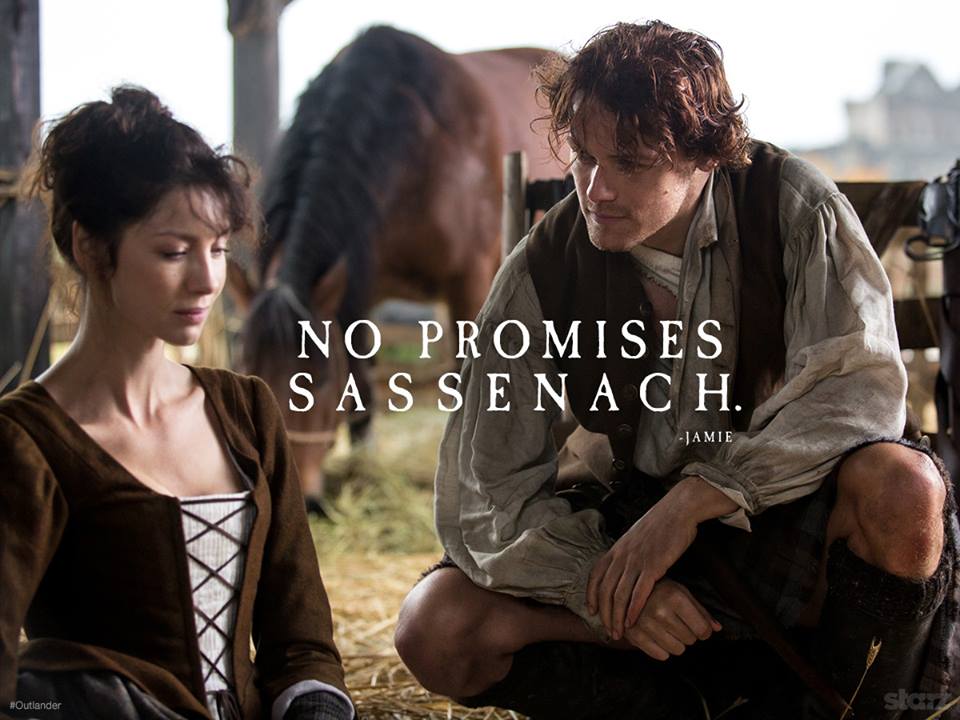Outlander – The Way Out, the third episode of Season 1, is a particularly interesting episode. One of the subplots of the episode is directly from the book, and the entire episode feels like it could have been pulled directly from the book (and some scenes appear to have been shuffled into this episode out of earlier chapters of the book) but if you are reading along in the novel Outlander you need only finish chapter 9.
Chapter 10, approximately page 178 of the novel, is where The Gathering begins in earnest, and as it happens, the title of episode 4 is slated to be… The Gathering.
Episode three might be one of the best episodes for those wanting to get a feel for how the book is being translated to the screen. The plot-point that was taken as a subplot directly to the screen was the one that, as a reader, struck me as significant, and telling about multiple characters. In an earlier article I remarked that it can be interesting to see what scenes in the book are so significant that every person in the collaborative process that it takes to make it a tv show is struck by that scene and agrees it needs to be on the screen. As a reader this was one of those scenes I hoped they felt the weight and impact of.
The subplot they added, the character they created, to me made perfect sense, and again spoke volumes about every character that interacted with him.
Episode three had a nice balance to it, some moments that spun on the intonation with which lines were delivered, and the body language that characters made sure only one or two others saw… it was this deliberateness in some cases, and subtlety in others that kept my eyes on the screen, and kept me interested from start to finish… and had me wanting to re-read the book yet again, wondering if there were things I had missed, things I should have noticed, things I might now understand differently because I could quite literally see them differently having just seen them on screen.
It is quite safe to say Diana Gabaldon’s series of Outlander novels stand alone quite successfully. And the STARZ Outlander television series likewise stands alone, and can be viewed independently of the books and a compelling drama unfolds before your eyes. But the two, in combination, create this extraordinary experience, where one sets you up with questions to ponder and ask as you experience the other… whichever you experience first keeps you guessing during the other even though you are pretty darn sure you know the journey you are being taken on.
